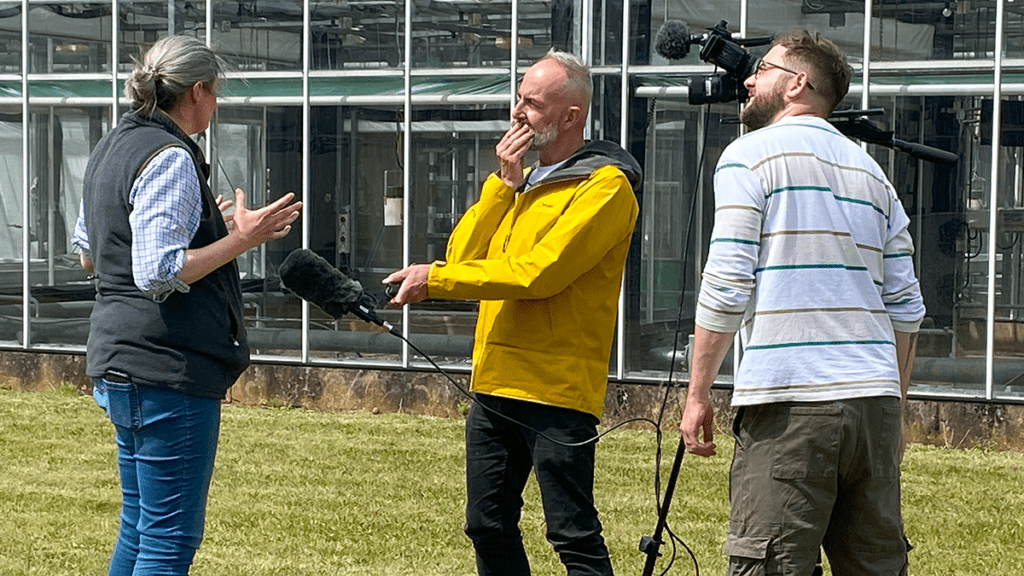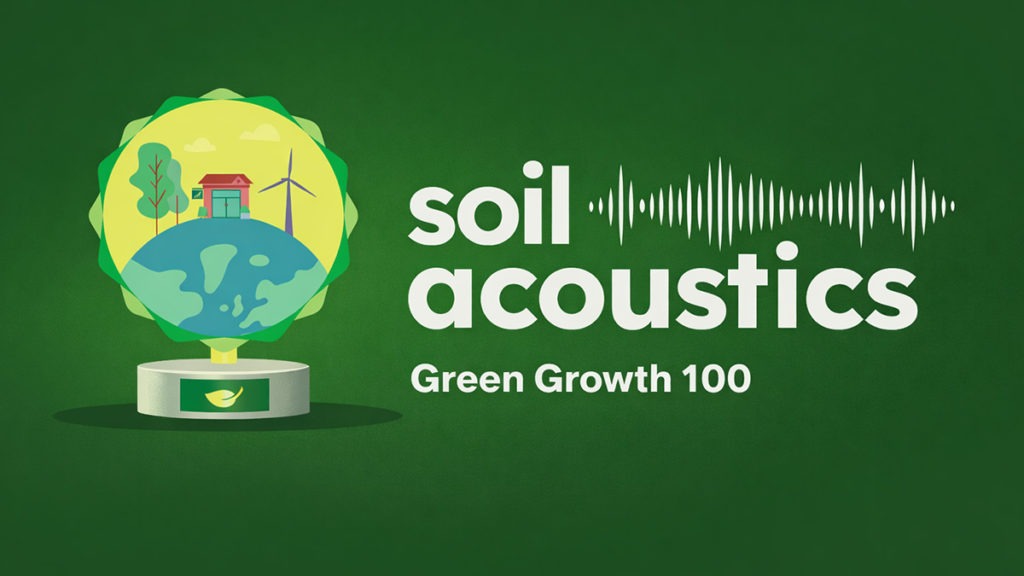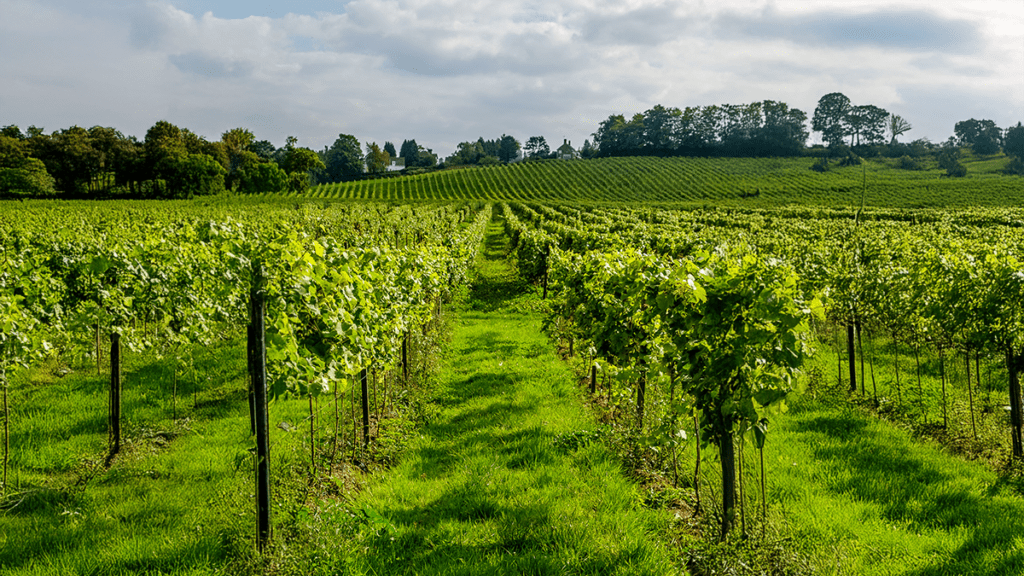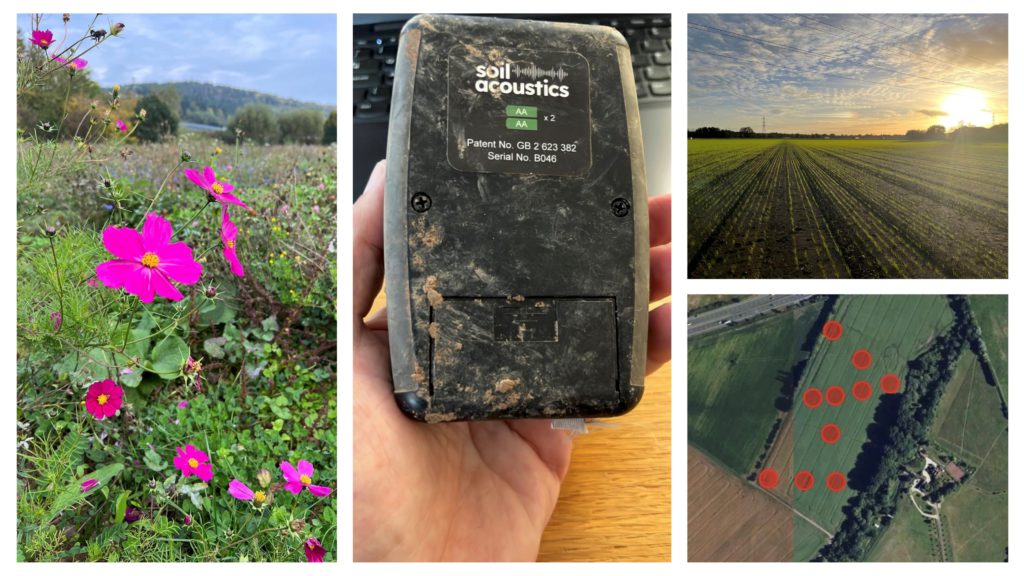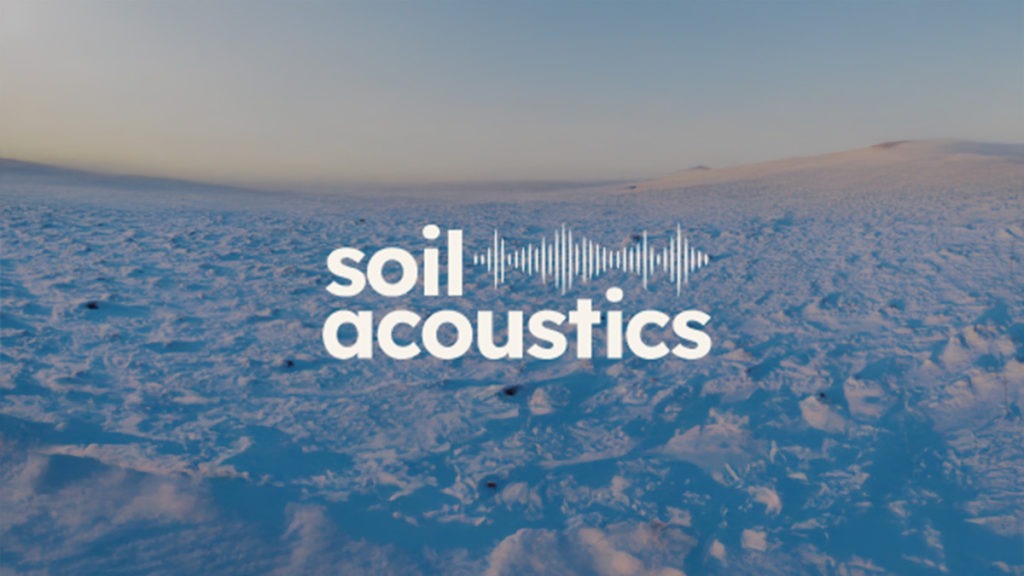Last week, we swapped our usual fieldwork for the spotlight as we stepped in front of the camera for an interview with the BBC.
Our research into soil acoustics was featured on BBC Midlands Today and BBC Breakfast, where we discussed our pioneering work with the University of Warwick, using sound to monitor earthworms and other soil fauna as a measure of soil health and biodiversity.
Following this coverage, our research has also captured national attention, with features in The Times and the Sunday Telegraph.
Funded by the DEFRA Farming Innovation Programme, our study is the first of its kind and has the potential to revolutionise soil health monitoring. Currently, farmers assess earthworm populations by digging sample pits and manually counting worms—a time-consuming and labour-intensive process. Our method, however, is much simpler: by placing probes in the soil to record the natural soundscape, we can analyse the data using advanced algorithms to determine the abundance, diversity, and activity levels of soil fauna.
Andrew Baker, Founder and Director of Soil Acoustics, told The Times:
“This grant will allow us to deepen the scientific evidence behind our approach and to develop a cutting-edge soil-monitoring service that promises to be a major disrupter in the soil-testing market. We anticipate that this technique can be used worldwide, anywhere where we are interested in soil health.”
With a patent pending for our innovative soil acoustic monitoring device and a growing number of trial farms onboard, the future of soil health monitoring is set for a significant shift. Our work is paving the way for a more efficient, scalable, and cost-effective approach to soil analysis—one that could have a lasting impact on agriculture and environmental conservation.
Watch our full BBC interview here.
If you’re interested in learning more about how soil acoustics can support your farming or research needs, get in touch with us via email at info@soilacoustics.com.
